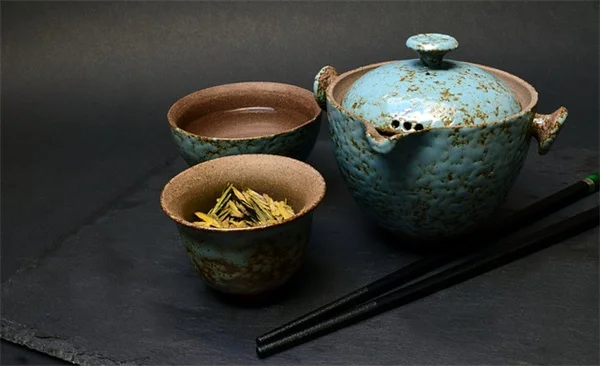Wondering how to protect your child's teeth from cavities? The answer is simpler than you think! According to the American Academy of Pediatrics, 40% of kids develop cavities by age 19 - but you can prevent this with some smart daily habits. I've broken down the latest pediatric dental recommendations into easy steps any parent can follow.Here's the deal: good oral health starts way before your child's first tooth appears. From choosing the right toothpaste to making brushing fun, we'll show you exactly what pediatricians recommend. The best part? These tips take just minutes a day but can save your child from painful cavities and expensive dental work later.
E.g. :Cardiac Arrest Warning Signs: How Men and Women Experience Them Differently
- 1、Why Your Child's Smile Matters More Than You Think
- 2、The Fluoride Factor: Why Tap Water Wins
- 3、Dentists Weigh In: What You're Probably Missing
- 4、Making Dental Care Actually Fun (Yes, Really!)
- 5、The Parent Playbook for Dental Success
- 6、Your Top Questions Answered
- 7、The Bottom Line on Bright Smiles
- 8、The Hidden Costs of Ignoring Baby Teeth
- 9、The Emotional Impact of Dental Health
- 10、Beyond Brushing: Whole Mouth Health
- 11、Dental Tech for Modern Families
- 12、When to Worry About Dental Development
- 13、Making Dental Visits Less Scary
- 14、FAQs
Why Your Child's Smile Matters More Than You Think
The Shocking Truth About Kids' Teeth
Did you know that 40% of American kids develop cavities before they turn 19? That's nearly half of all children walking around with tooth decay! I was stunned when I first heard this statistic - aren't you? The good news is, we can change this trend starting today.
The American Academy of Pediatrics just dropped some game-changing guidelines that every parent needs to hear. Dr. David Krol, the lead author, puts it perfectly: "Preventing cavities begins before that first tiny tooth even appears." That means oral health starts way earlier than most of us realize.
Your Action Plan for Healthy Teeth
Here's the deal - protecting your child's smile isn't complicated, but it does require some smart habits. Let me break down the must-know tips from the experts:
| Age | Juice Limit | Key Action |
|---|---|---|
| 0-1 year | No juice | First dental visit |
| 1-3 years | 4 oz/day | Rice-sized toothpaste |
| 4-6 years | 4-6 oz/day | Pea-sized toothpaste |
| 7-18 years | 8 oz/day | Supervised brushing |
The Fluoride Factor: Why Tap Water Wins
 Photos provided by pixabay
Photos provided by pixabay
Bottled Water vs. Tap Water Smackdown
Here's a fun fact that might surprise you - that fancy bottled water you're buying might actually be worse for your kid's teeth! Fluoridated tap water is the real MVP when it comes to preventing cavities. Dr. Whelan explains: "Most bottled waters don't contain enough fluoride to protect teeth."
Think about it this way - fluoride is like a superhero shield for your child's teeth. It fights off cavity-causing villains all day long. The AAP recommends fluoride toothpaste, rinses, and even special varnish treatments from your dentist 2-4 times per year.
When Should You Start Worrying About Fluoride?
Great question! The answer might shock you - you should start thinking about fluoride before your baby's first tooth appears. That's right, oral health begins with the habits we create from day one.
Here's my personal tip: make fluoride fun! Let your kids pick out their own fluoride toothpaste with their favorite cartoon character. My niece loves her "unicorn sparkle" toothpaste so much she reminds me when it's brushing time!
Dentists Weigh In: What You're Probably Missing
The Magic Number You Need to Know
Dr. Lipari dropped this bombshell: permanent teeth start coming in at age 6. Those are the teeth your child will have for life! Doesn't that make you want to protect them extra carefully?
Here's where many parents slip up - we wait too long for that first dental visit. While the AAP suggests establishing care by age 1, most kids don't see a dentist until age 3 or later. Let's change that!
 Photos provided by pixabay
Photos provided by pixabay
Bottled Water vs. Tap Water Smackdown
Raise your hand if you thought kids could brush properly by age 6? *lowers own hand* Yeah, me too. But experts say most children need supervision until at least age 10, and some need help even longer with flossing.
Try this trick that worked for my neighbor: make it a family affair! Brush your teeth together every morning and night. It becomes bonding time instead of a chore.
Making Dental Care Actually Fun (Yes, Really!)
The Secret to Happy Brushing
Dr. Hoss has this brilliant philosophy: "If it's not fun, it's not sustainable." That's why I let my nephew pick out his toothbrush with flashing lights and his favorite fruit-flavored toothpaste.
Here's a hilarious story - one mom told me her daughter refused to brush until they found toothpaste that changed colors as she brushed. Now the kid begs to brush three times a day! Moral of the story? Get creative.
Safety First, Sparkle Second
Before you buy that glittery toothpaste, here's what you need to know: kids swallow way more toothpaste than adults. That means we need to be extra careful about ingredients.
My rule of thumb? If I can't pronounce half the ingredients, I put it back on the shelf. Your dentist can recommend safe, effective products tailored to your child's age and needs.
The Parent Playbook for Dental Success
 Photos provided by pixabay
Photos provided by pixabay
Bottled Water vs. Tap Water Smackdown
Here's something wild - the bacteria in your mouth can actually transfer to your child's mouth. That's right, your oral health directly impacts theirs. Talk about motivation to floss!
I'll admit it - I wasn't the best at flossing until I learned this fact. Now I keep floss picks everywhere - car, purse, nightstand. No excuses!
The Power of Routine
Consistency is key when building lifelong habits. Try pairing brushing with another daily activity - like right after putting on pajamas or before reading bedtime stories.
Pro tip from a mom of three: set a fun 2-minute timer (they make toothbrush timers that play songs!) and make it a challenge to brush the whole time. Kids love a good challenge.
Your Top Questions Answered
When Should My Child Start Flossing?
This one catches many parents off guard. The moment your child has two teeth that touch, it's flossing time! Yes, even for those tiny baby teeth.
Don't stress about perfect technique at first. Those floss picks are lifesavers for wiggly kids. The goal is to make it a normal part of their routine.
What If My Child Hates Brushing?
First, welcome to the club! Most kids go through phases of resisting brushing. The trick is to make it engaging - try letting them brush your teeth first, or make up silly songs about plaque monsters.
One dad told me he created a "brushing chart" where his son got to add a sticker after each successful brushing. After 30 stickers? A trip to the toy store. Whatever works!
The Bottom Line on Bright Smiles
Small Steps Lead to Big Results
Remember, you're not just preventing cavities - you're creating lifelong habits. Start small if you need to. Even one extra brushing session per week is progress!
The most important thing? Don't give up. There will be nights when you're too tired to fight the brushing battle. That's okay. Just get back on track tomorrow.
You've Got This!
Parenting is tough enough without stressing over every dental detail. Follow these guidelines, trust your instincts, and celebrate the small wins. Before you know it, you'll have a teenager reminding YOU to floss!
Now go forth and conquer those plaque monsters. Your child's future self will thank you - with a bright, healthy smile.
The Hidden Costs of Ignoring Baby Teeth
Baby Teeth Aren't Just Placeholders
You might think those tiny baby teeth don't matter since they'll fall out anyway, right? Wrong! Baby teeth serve as guides for permanent teeth, and losing them too early can cause serious alignment issues. I've seen kids need expensive orthodontic work because parents didn't take early dental care seriously.
Here's something most people don't realize - cavities in baby teeth can actually infect the developing permanent teeth underneath. That's why early dental visits are so crucial. My cousin learned this the hard way when her 5-year-old needed four baby root canals!
The Sugar Trap in "Healthy" Foods
We all know soda is bad, but what about those organic fruit snacks and vitamin waters? Many so-called healthy kids' foods contain shocking amounts of hidden sugar. I was floored when I checked the label on my niece's favorite yogurt - 22 grams of sugar in one tiny cup!
Here's a quick comparison of sneaky sugar sources:
| Food Item | Teaspoons of Sugar | Better Alternative |
|---|---|---|
| Flavored Yogurt | 5.5 | Plain yogurt + fresh fruit |
| Sports Drink | 8.5 | Coconut water |
| Granola Bar | 4 | Nuts and cheese cubes |
The Emotional Impact of Dental Health
Confidence Starts with a Smile
Have you ever considered how much a child's smile affects their self-esteem? I'll never forget the transformation in my neighbor's son after fixing his front teeth. The kid went from hiding his smile to being class president! That's the power of good dental care.
Research shows kids with dental issues are more likely to be bullied or struggle socially. It breaks my heart to think about children avoiding laughter or covering their mouths because they're embarrassed. We can prevent this!
The Sleep Connection
Here's something you probably haven't heard - dental problems can actually disrupt your child's sleep! Misaligned teeth or jaw issues often cause breathing problems at night. One mom told me her son's grades improved dramatically after addressing his dental issues - he was finally getting restful sleep.
Think about it - we spend so much time worrying about screen time before bed, but we might be overlooking a major sleep disruptor right in their mouths!
Beyond Brushing: Whole Mouth Health
Tongue Cleaning Matters Too
While we're all focused on teeth, the tongue often gets ignored. A coated tongue harbors bacteria that cause bad breath and tooth decay. I started teaching my nephew to gently brush his tongue, and his dentist noticed the difference immediately!
Here's a fun trick - let kids stick out their tongues and make silly faces while cleaning. It turns a chore into a game, and you'll both end up laughing.
The Forgotten Cheek Factor
Did you know food particles often get trapped between teeth and cheeks? Most kids (and adults!) completely miss this area when brushing. My dentist showed me how to angle the toothbrush toward the cheeks, and wow - what a difference it made!
Try this at home - after regular brushing, have your child say "eeee" to stretch their cheeks, then brush gently along the inner surfaces. You'll be amazed what comes out!
Dental Tech for Modern Families
Smart Toothbrushes Worth the Hype
Those pricey electric toothbrushes with apps aren't just gimmicks - they actually work! The feedback system helps kids learn proper technique. My friend's daughter improved her brushing so much that her dentist thought she'd been getting professional cleanings.
Don't want to splurge? Even basic electric toothbrushes with timers make a huge difference. The vibration does a better job removing plaque than manual brushing alone.
Water Flossers: Game Changer or Gimmick?
As someone who struggled for years to get my kids to floss, I can tell you - water flossers are worth every penny. They're fun to use (kids love the "water gun" effect) and much more effective than traditional floss for reaching tricky spots.
Here's my advice: start with an affordable model to see if your child likes it. If they do, you can always upgrade later. The key is making oral care enjoyable!
When to Worry About Dental Development
Spotting Early Warning Signs
Most parents don't realize that thumb sucking beyond age 4 can permanently alter jaw structure. I wish someone had told me this sooner - my cousin's daughter needed extensive orthodontic work because of prolonged pacifier use.
Other red flags include mouth breathing, teeth grinding at night, and speech difficulties. If you notice any of these, don't wait - schedule a dental consultation ASAP.
The Truth About Early Tooth Loss
Losing baby teeth too early isn't cute - it's a dental emergency! Teeth on either side can shift into the empty space, blocking permanent teeth from coming in properly. If your child loses a tooth prematurely, ask your dentist about space maintainers.
I learned this lesson when my son knocked out a tooth at age 5. The space maintainer looked scary at first, but it saved us thousands in future orthodontics!
Making Dental Visits Less Scary
Pre-Appointment Prep That Works
Dental anxiety often starts with the unknown. I've found that showing kids YouTube videos of happy dental visits or reading books about dentists helps tremendously. My favorite is "The Berenstain Bears Visit the Dentist" - it worked like magic for my nervous niece.
Role playing at home with a toy dental kit helps too. Let your child "examine" your teeth first to build confidence.
The Power of Positive Reinforcement
Never underestimate the power of a good reward system! Many dental offices now offer sticker charts or small prizes, but you can reinforce this at home too. After successful visits, we always stop for a sugar-free treat - it gives my kids something to look forward to.
Remember - your attitude matters most. If you're nervous, they'll be nervous. Fake that confidence until you make it!
E.g. :The Reference Manual of Pediatric Dentistry: Definitions, Oral ...
FAQs
Q: When should my child first see a dentist?
A: Here's something many parents get wrong - your child should have their first dental visit by age 1, not when problems appear. I know it sounds early, but establishing care this young helps prevent issues before they start. The AAP recommends this timing because pediatricians can spot potential problems and teach parents proper brushing techniques for those tiny teeth. Remember, those baby teeth matter more than you think - they hold space for permanent teeth and affect speech development!
Q: How much juice is safe for my child's teeth?
A: This one surprised me too - the AAP says no juice before age 1, period. For toddlers (1-3 years), limit juice to just 4 ounces daily - that's half a cup! Older kids (4-6) can have 4-6 ounces, while teens should cap it at 8 ounces. Here's why: juice packs a sugary punch that feeds cavity-causing bacteria. I've seen parents swap juice for flavored waters or dilute it with fluoridated tap water - both great options that protect those precious teeth.
Q: Is bottled water better than tap water for kids?
A: Actually, it's the opposite! Most bottled waters lack fluoride, that magic mineral that strengthens tooth enamel. Our family switched to fluoridated tap water after learning this - it's cheaper and better for teeth! If you're worried about tap water quality, simple filters can remove impurities while keeping the fluoride. Pro tip: let your child pick out a fun reusable water bottle to make tap water more appealing - my nephew loves his dinosaur bottle!
Q: How long should I supervise my child's brushing?
A: Brace yourself - until age 10! I was shocked too, but most kids don't develop the coordination for thorough brushing until then. Here's what works for us: we do a "team brush" where my child brushes first, then I do a quick follow-up. Making it a game ("let's find those hidden sugar bugs!") keeps it fun. The AAP says this supervision is crucial because kids often miss back teeth where cavities love to hide.
Q: What's the best toothpaste for kids?
A: Look for fluoride toothpaste with the ADA seal - but the amount matters! For babies, use just a rice-grain sized smear. At age 3, upgrade to a pea-sized amount. Here's my favorite trick: let your child pick their own flavor (bubblegum or strawberry?) to make brushing exciting. Just avoid "natural" toothpastes without fluoride - they might taste great but won't protect teeth as effectively. When in doubt, ask your pediatrician or dentist for brand recommendations!

